In the last six months, July 2017 to December 2017, I managed to double the number of page views on my site at Catapult Themes. I can tell you that no one is more surprised by that statistic than I am. I always found it very difficult to motivate myself to perform any kind of marketing effort and just hearing the letters ‘SEO’ can make me physically sick.
However, half way through 2017, I made a conscious decision to work harder on content marketing and SEO and the results speak for themselves:

More page views lead to more sales
Crucially, this increase in page views corresponds to an increase in sales.
There’s a long way to go – I’d like to significantly improve these figures again during 2018 – but at least things are going in the right direction.
In this article, I wanted to share some of the techniques I’ve used to change the way I approached blogging and how I switched my mindset from being a developer who occasionally blogged to someone who deliberately created content for the purpose of marketing products.
If you sell WordPress plugins or themes, then hopefully some of the tips in this article will help you market your products more effectively.
Tip #1: Marketing is a necessary evil
The reason for wanting to work harder on SEO was simple: I wanted to sell more products.
You can have the best product in the world but if no one has ever heard of it, you will never sell a single copy. Yet you can have a very mediocre product at #1 in Google for relevant search terms and sales will always be strong, however good the products are below it.
So unfortunately, although I don’t think SEO is always fair or rewards the best product, it’s a necessary evil.
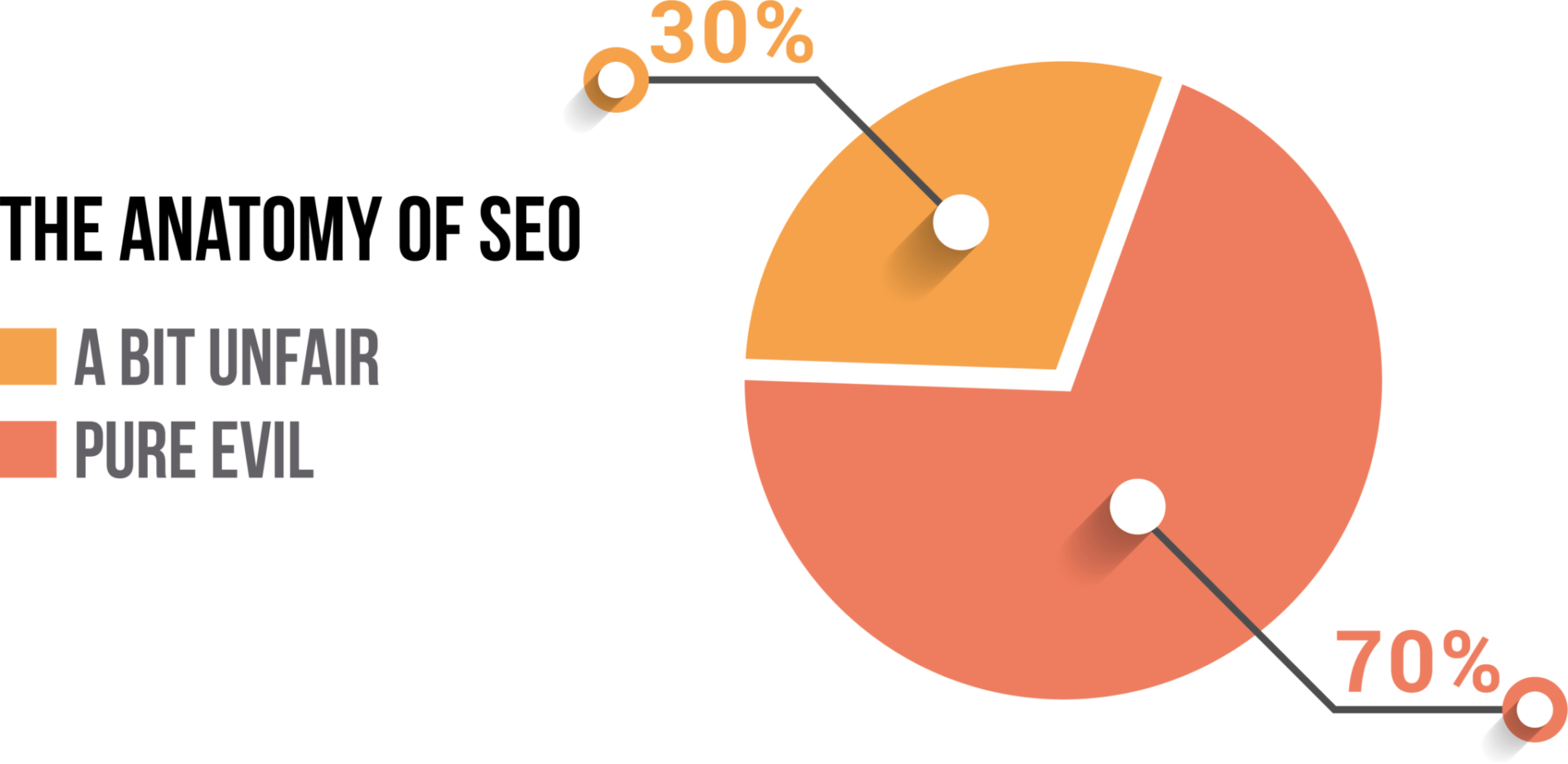
New features are pointless
Well, not exactly pointless, but you should place less emphasis on new features and more emphasis on marketing.
I understand that you’re a developer and you don’t want to get your hands dirty with stuff like SEO and marketing. I felt exactly the same. I was happy coding new features on a daily basis – but if no one ever sees your new features, then what’s the point of them?
Better SEO means more profit
The outcome of my focus on marketing was a corresponding increase in sales. More people to my website meant more money in my pocket. When you’re making money, that’s when you can start looking at all those fancy new features you’ve been dying to code.
So the first lesson I learned was that more time spent on marketing meant more profit. Sounds obvious when you say it, but it took a while for it to sink in with me.
Tip #2: Write what you know
It was Mark Twain, apparently, who gave the advice to ‘write what you know’. I bet he never had to worry about SEO or SERPs.
How often do you read advice like the following from people who aren’t Mark Twain?
Create great content!
Write amazing content!
Create the best content!
Write the best article on the subject!
And what I always think to myself is: well, that sounds quite easy… then realise it’s not. If it was that freakin’ easy to write great content, then everyone would be doing it.
Who should we blame for this?
I blame the big noises in search optimization like Brian Dean whose site Backlinko is full of excellent advice about SEO. Or Neil Patel, who is some kind of marketing bigwig, and who uses the exact phrase ‘just create great content‘ in his conclusion to this article – http://contentmarketinginstitute.com/2015/11/content-seo-friendly/. I see these phrases, or variations of them, in countless articles on SEO.
But if it was so easy to write the best article on a subject, all articles would be the best. Which is impossible.
What makes great content?
Great content is stuff that you know that other people might not know.
Feel free to roundly criticise this definition but it helps me in deciding what to write next (substituting ‘useful’ for ‘great’ also helps). When thinking about this article, I had to consider how many articles on SEO there already were (loads) against how much actionable advice there was specifically for WordPress developers (not much).
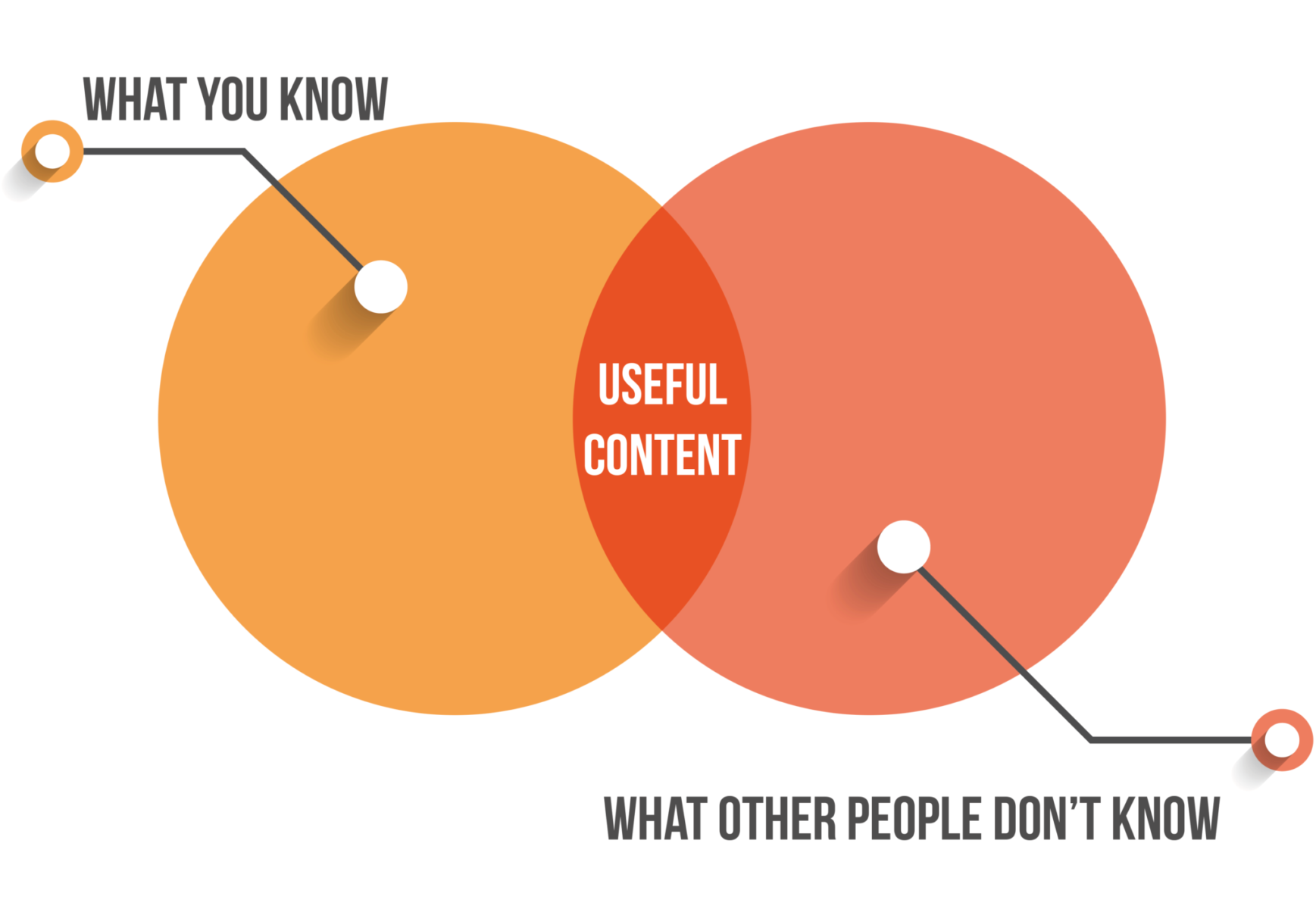
Types of content
The exhortations to write great content can be off-putting for many people, particularly if writing or blogging isn’t your strength. One way to make it easier is to think of content as belonging to one of two types:
- Technical
- Content marketing
This might be a bit arbitrary but hey ho. For me, it simplifies the decision of what to write next.
Technical content
If you’re a developer, then technical content should be right up your street. You’ve got an almost unlimited number of subjects to write about: namely, anything you’ve coded. For example:
- Write about the plugin you’ve just developed
- Write about just one aspect of the plugin you’ve just developed
- Write about a feature you included in a recent theme or site
- Write a tutorial on something you know well, e.g. the WordPress settings API, or OOP, or the Customizer
- Write about a project you’re currently working on (without hindsight)
- Write about a recent project (with hindsight)
As an example, I wrote an article on how to add images to categories because I’d wanted to add an image upload field to a custom taxonomy for a plugin I built and I couldn’t find much information about how to do it. The post is a consistently high performer – bringing in hundreds of page views per month.
Content marketing
Content marketing articles are more challenging, I think, if your strengths are in coding and development. By content marketing, I mean writing blog posts and articles which are intended to create interest in your product.
For example, if you’ve just developed a new plugin to add a full screen slider to WordPress, then you could write an article about the benefits of using full screen sliders on your homepage. (This could even accompany a technical article on some development aspect of the same project).
Ideas for content marketing articles include:
- Case studies
- Typical scenarios for using your product
- Great examples of usage
- Guidance for people on how to use your product
A fairly easy way to product content marketing articles is to create lists – you know the type of thing, the top five somethings, etc.
My proudest moment
To call this my proudest moment is a bit of an exaggeration, but I received this email recently from someone who discovered my forum plugin through an article I wrote. So content marketing does work.

(It’s also great when people take the time to tell you this).
Write about Gutenberg
Finally, if you’re ever at a loss what to write about, then just write an article moaning about Gutenberg. That’s what everyone else does at the moment.
Tip #3: Write everything you know about what you know
It used to be the case that dashing off a quick 300 word article before breakfast was all that Google required of you. No longer. Nowadays, you need to be thinking upwards of 1000 words, perhaps even 2000 words.
Writing long articles is boring
Oh, absolutely. But look at the chart below showing how word count correlates to SERP. For Google, size is important:
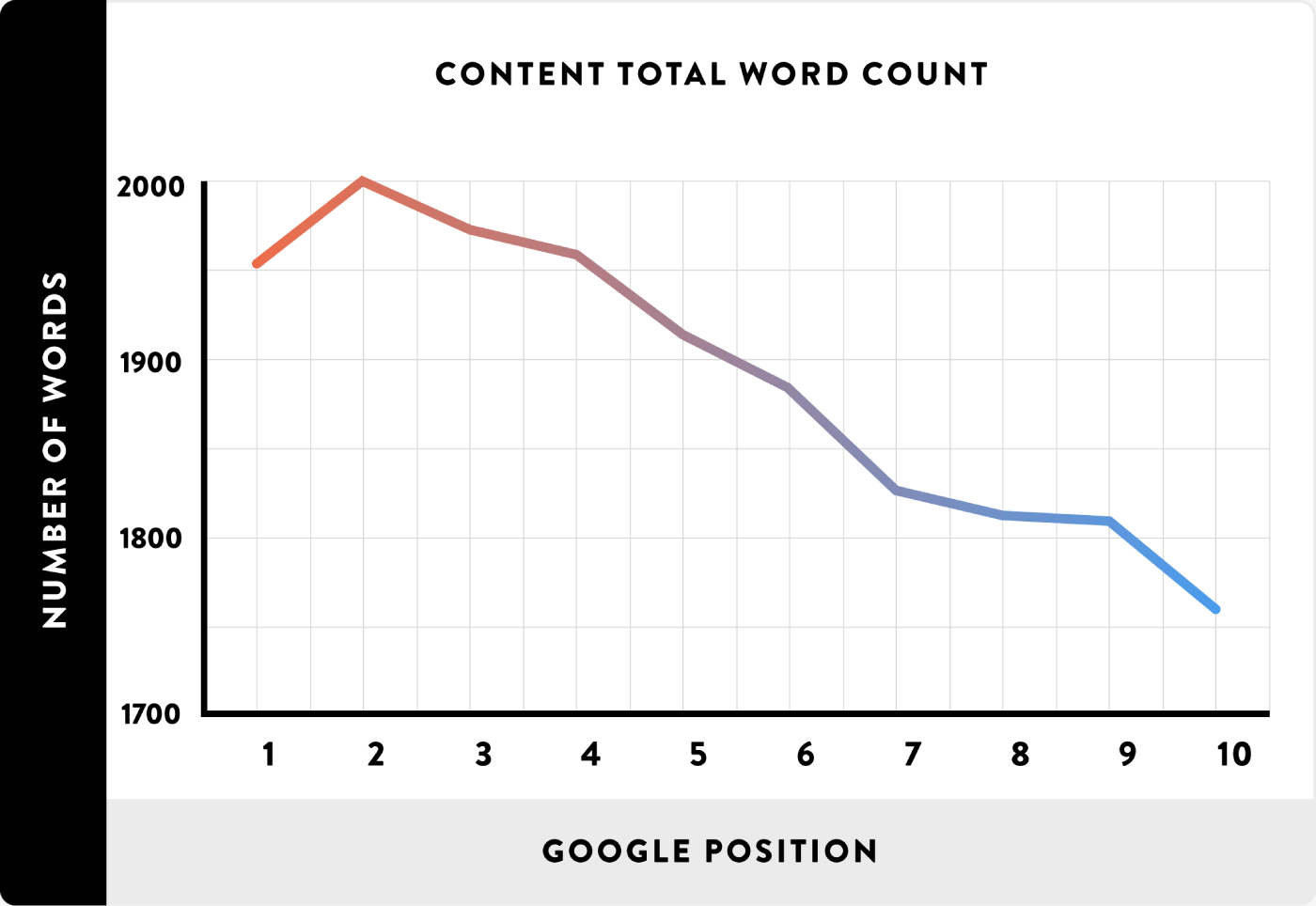
Why is size important?
There are several reasons for Google liking longer articles, including:
- Dwell time – the longer a reader spends on a page, the more Google takes this as a signal that the page is worth reading.
- Context – the more words you have on your page, the more likely it is that you cover all the words and phrases that Google associates with the page’s topic. So Google thinks your page is more relevant.
The bare minimum is not enough
Force yourself to keep writing a bit more. Don’t be tempted to do the bare minimum.
In the technical article that I referred to above about adding images to categories and taxonomies, there are probably only around 50 lines of code but the article is nearly 2000 words in length because I’ve tried to explain each section of code and relate the code to what the end user sees on the front end. I’ve also added images to support the text and broken the code up, explaining each step. It can be tiresome but ultimately it’s worth it.
The content marketing article that triggered the email behind my proudest moment (see above) was How to add a forum to WordPress. Essentially, it’s a step by step guide to using my plugin but I added:
- Background information on forums
- Types of forums available
- Why you might want a forum
- Benefits of forums
- Step by step guide to configuring my forum plugin
- Even a list of other plugins
This made the post more general, took it up to over 3000 words, and now it ranks in the top 10 for a number of search terms.
Techniques for writing more
Here are some ideas for ensuring you maximize your word count:
- Don’t set time pressures. Don’t think: “Today, I am going to write a new article”. Instead, think: “Today I am going to start a new article”. I find that getting started is the biggest obstacle – once I get going, things aren’t too bad
- Research what other people have written on the topic. Make sure you’ve covered their points
- Find a time of day that you prefer to write. Try writing first thing in the morning to get it out of the way
- Set a minimum word count per writing session
Tip #4: Link building doesn’t make you a bad person
Very often, I’ll read an article about “link building” or “email outreach”. These are two phrases that always made my heart sink.
In case you haven’t come across these terms before, I should explain that link building is the process of getting other websites to link to your site. Email outreach is the process of contacting website owners to persuade them to add those links.
Email outreach is, therefore, essentially cold-calling strangers. Now, if you’re the sort of person who happily bounces round a party speaking to people you’ve never met before, then probably you’d be fine with email outreach.
If, however, the idea of asking strangers to do you a favour makes you feel a bit grubby then, like me, you probably haven’t done much in the way of email outreach.
Additionally, if you already run a website, you’ll be familiar with templated, misspelt, spammy type emails asking for links. You’ll be conditioned to dislike email outreachers and the last thing you’ll want to do is to become one of them.
I learned that I was wrong to fear link building and that, in fact, it was surprisingly easy to get started with and highly effective
Link building is a critical SEO activity
The more links you have to your site, the better you’ll rank. Here’s another chart purloined from Backlinko:
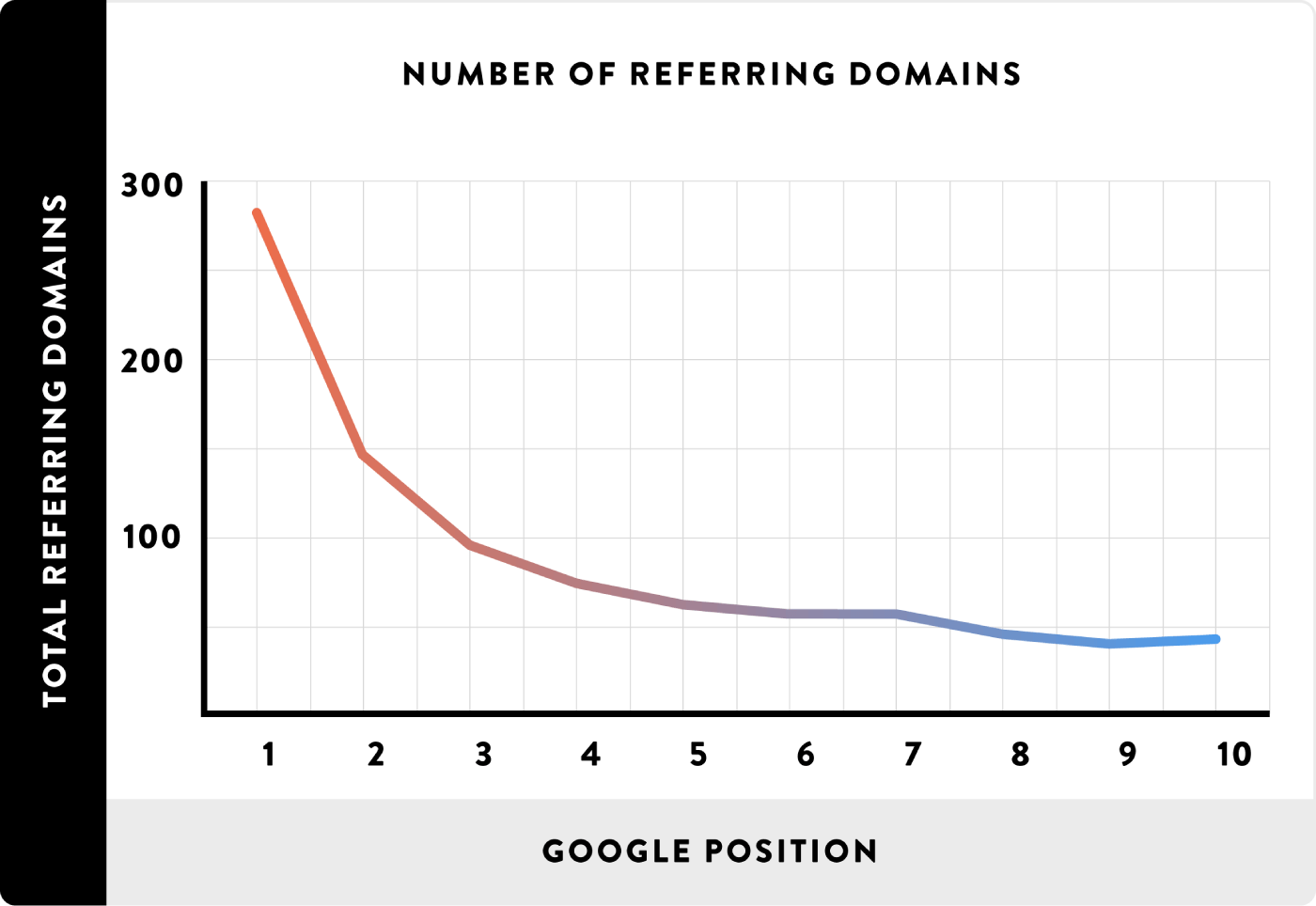
So – the more links you have pointing to your page, the higher the page will rank in Google. Simples.
Don’t be a stranger
Knowing the importance of links doesn’t make it any easier to send begging letters to strangers. I have only recently started link building so here’s the approach I take at the moment:
- Find blog posts that mention similar products to yours. Write to the author with a genuine request.
- Don’t use templates: write a personal email to each individual based on the article you’re requesting a link for, what you know about the site or the writer you’re applying to
Ultra-simple example link building process
Let’s say you’ve developed a new theme for construction companies:
- Google the phrase ‘construction theme’ and you’ll find loads of blog posts listing the ‘Best [insert number here] construction themes’.
- Go through each of these posts and check if your theme appears.
- If it doesn’t, you need to write to the blog post author and ask them to include your theme in their list
Surprising fact: many of the people writing these blog posts are actually really nice people and will be happy to accommodate your request
Email outreach tips
- Offer to supply bloggers with unique content about your product. They might not want it but it helps push them in the right direction.
- Offer to supply images. Take a couple of seconds to check out the size of images used in the post and confirm you can send them images at that size (it shows you’ve done your research).
- If you’ve got an affiliate program, point them towards where to sign up on your site. A lot of bloggers make money through their affiliate links. (Bear in mind that affiliate links may not pass SEO link juice, depending on how they’re structured, but the link should still send traffic).
- You could offer to send the blogger a review copy of your product. Whether they will want one or not depends on how diligently they do their research – but it’s another good way of showing you’re serious and building trust.
- Sometimes you find a post that hasn’t been updated for several years. The odds are that the author is less likely to bother updating these than newer posts; however, you might be able to spin this to your advantage. Point out that the post is old and some new content might help invigorate it.
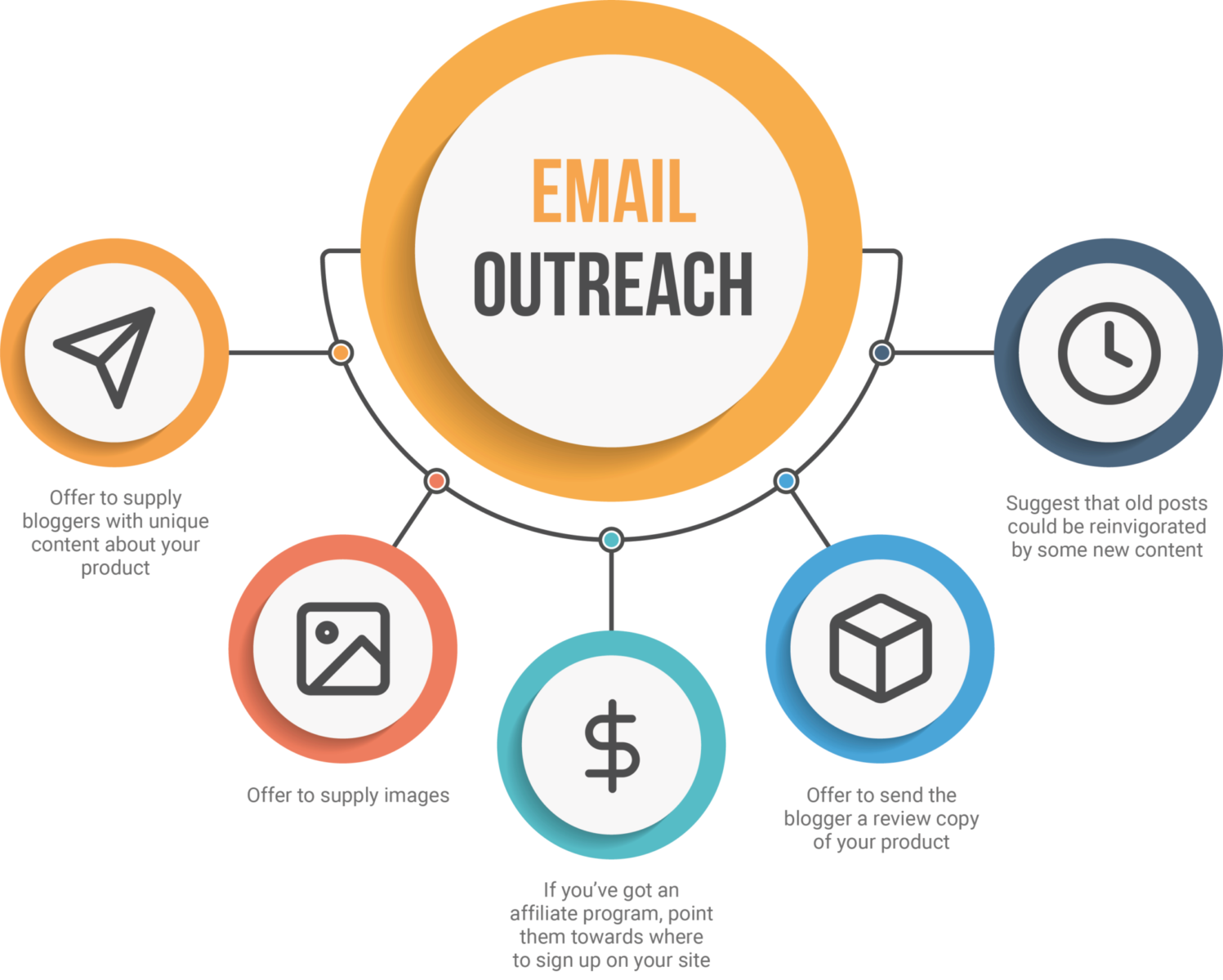
Remember: bloggers are often keen to find content. Even if your initial request doesn’t get you listed in a post, at least you’ve made some contacts and you have every chance of getting listed in their next post.
Further link building resources
- A really good article about effective email outreach
- A very interesting article about how to use effective language in your email
- A list of WordPress sites where you can promote your content
Tip #5: Improve SERPs for existing content
In other words, do your keyword research after you’ve written the article. But first:
WTF is a SERP?
SERP means Search Engine Results Page, i.e. where your site appears in a search result. You can take action to improve your search positions even after you’ve published your article.
Ensure keywords are contained in the content
Here is one technique:
- Sign up for a free account at Ahrefs. Every week they email a summary report of new keywords on your site and where they rank for search terms. They also provide the estimated monthly volume of search traffic for that term.
- Check through the list and look for a good combination of high search traffic and an encouragingly high search position
Here’s a real-life example of a term in a report that I received recently:

I can see from the Ahrefs report that a post I wrote recently about the most popular WordPress plugins and themes is ranking just outside the top 10 for the search term ‘most popular WordPress themes’. This term has an estimated volume of 1000 visitors per month. If I could push this post into the top 10, I could expect to see a significant increase in traffic.
The first thing I did was to check the post for the exact phrase ‘most popular WordPress themes’. I found that the exact phrase wasn’t present in the post so I was quickly able to add this term in several places in the article, both in the main text and into a couple of sub-headings. Having the keyword present in the content makes it more likely to rank higher for that keyword.
I also noticed that the post was ranking for the same search term in the singular, i.e. ‘theme’ not ‘themes’, again just outside the top 10.

Checking through the article, I found that the search term in the singular wasn’t actually present anywhere. So I inserted some new text to ensure this phrase also occurred within the text.
What I learned here is that you can continue to tweak and improve your content even after it’s been published
Bonus tip: Every article needs a strong ending
This is normally where I run out of steam. It can be difficult to sum up a 3000 word article in a sentence. But there is one thing I know:
Always include a call to action at the end of your article
E.g., if you are a WordPress plugin author, then check out Wisdom to help you gain more users and generate more revenue.
Solid article, Gareth. I wish more developers embraced SEO, and doing the things like content creation and link building. That stuff really does pay off. SEO is not the devil. If you’re doing it right, it is helping your audience find the answers to their questions via Google.
Thanks John.